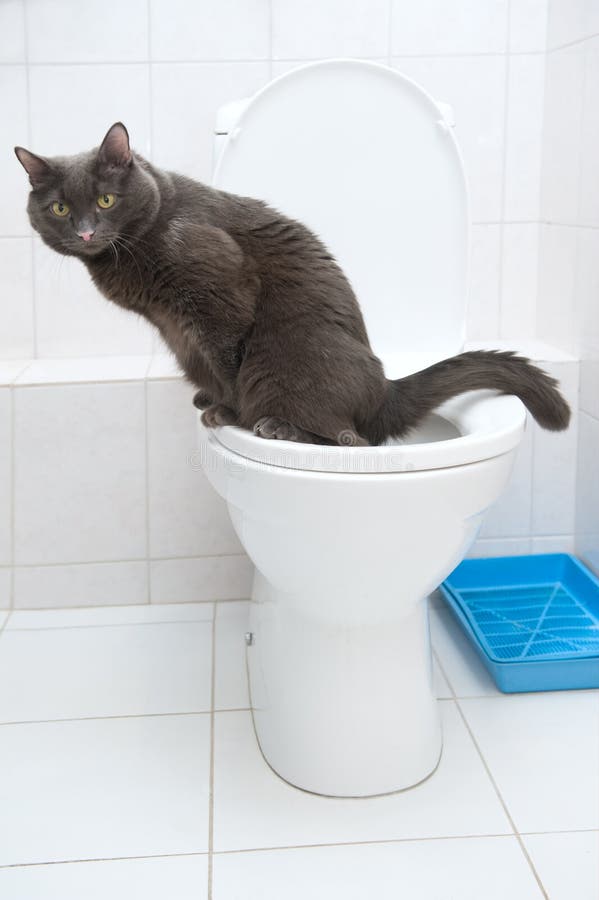Why You Shouldn't Flush Cat Poop Down Your Toilet - Maintain Your Plumbing Health
Why You Shouldn't Flush Cat Poop Down Your Toilet - Maintain Your Plumbing Health
Blog Article
Everyone is bound to have their personal idea in relation to Don’t flush cat feces down the toilet.

Introduction
As cat owners, it's essential to be mindful of how we deal with our feline pals' waste. While it may seem convenient to flush cat poop down the bathroom, this practice can have destructive effects for both the atmosphere and human health.
Alternatives to Flushing
Fortunately, there are more secure and a lot more responsible means to throw away feline poop. Think about the following alternatives:
1. Scoop and Dispose in Trash
One of the most usual technique of dealing with cat poop is to scoop it right into an eco-friendly bag and throw it in the trash. Be sure to utilize a dedicated clutter inside story and throw away the waste immediately.
2. Usage Biodegradable Litter
Go with eco-friendly cat trash made from products such as corn or wheat. These trashes are eco-friendly and can be safely taken care of in the trash.
3. Hide in the Yard
If you have a backyard, consider hiding pet cat waste in a designated location far from veggie gardens and water sources. Make certain to dig deep enough to stop contamination of groundwater.
4. Install a Pet Waste Disposal System
Purchase a family pet garbage disposal system specifically created for pet cat waste. These systems use enzymes to break down the waste, decreasing smell and ecological influence.
Health Risks
Along with environmental worries, purging pet cat waste can also position health and wellness threats to human beings. Cat feces may consist of Toxoplasma gondii, a bloodsucker that can trigger toxoplasmosis-- a possibly extreme ailment, specifically for pregnant women and individuals with weakened immune systems.
Environmental Impact
Flushing feline poop presents harmful pathogens and parasites into the supply of water, presenting a substantial threat to water ecological communities. These pollutants can adversely impact aquatic life and concession water quality.
Final thought
Liable animal ownership extends past giving food and sanctuary-- it also entails correct waste monitoring. By avoiding flushing feline poop down the toilet and choosing alternate disposal methods, we can minimize our environmental impact and secure human health and wellness.
Why Can’t I Flush Cat Poop?
It Spreads a Parasite
Cats are frequently infected with a parasite called toxoplasma gondii. The parasite causes an infection called toxoplasmosis. It is usually harmless to cats. The parasite only uses cat poop as a host for its eggs. Otherwise, the cat’s immune system usually keeps the infection at low enough levels to maintain its own health. But it does not stop the develop of eggs. These eggs are tiny and surprisingly tough. They may survive for a year before they begin to grow. But that’s the problem.
Our wastewater system is not designed to deal with toxoplasmosis eggs. Instead, most eggs will flush from your toilet into sewers and wastewater management plants. After the sewage is treated for many other harmful things in it, it is typically released into local rivers, lakes, or oceans. Here, the toxoplasmosis eggs can find new hosts, including starfish, crabs, otters, and many other wildlife. For many, this is a significant risk to their health. Toxoplasmosis can also end up infecting water sources that are important for agriculture, which means our deer, pigs, and sheep can get infected too.
Is There Risk to Humans?
There can be a risk to human life from flushing cat poop down the toilet. If you do so, the parasites from your cat’s poop can end up in shellfish, game animals, or livestock. If this meat is then served raw or undercooked, the people who eat it can get sick.
In fact, according to the CDC, 40 million people in the United States are infected with toxoplasma gondii. They get it from exposure to infected seafood, or from some kind of cat poop contamination, like drinking from a stream that is contaminated or touching anything that has come into contact with cat poop. That includes just cleaning a cat litter box.
Most people who get infected with these parasites will not develop any symptoms. However, for pregnant women or for those with compromised immune systems, the parasite can cause severe health problems.
How to Handle Cat Poop
The best way to handle cat poop is actually to clean the box more often. The eggs that the parasite sheds will not become active until one to five days after the cat poops. That means that if you clean daily, you’re much less likely to come into direct contact with infectious eggs.
That said, always dispose of cat poop in the garbage and not down the toilet. Wash your hands before and after you clean the litter box, and bring the bag of poop right outside to your garbage bins.
https://trenchlesssolutionsusa.com/why-cant-i-flush-cat-poop/

Hopefully you liked our excerpt about Can You Flush Cat Poop Down The Toilet?. Thanks a lot for taking the time to read our posting. Those who appreciated our post if you please don't forget to share it. Bless you for your time. Don't hesitate to check our site back soon.
Book Your Service Report this page